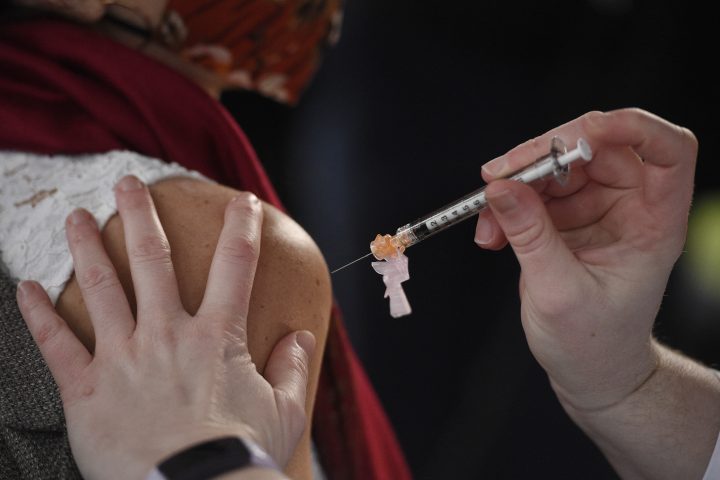As regular travellers know, there are a number of countries where you have to prove that you’ve had certain immunizations before you cross the border.

But how would an ‘immunity passport’ work if required within people’s own province or community, say, if they wanted to attend a large event like an NHL or CFL game? Or even their own job?
Neil McArthur, associate professor and director of the University of Manitoba’s Centre for Professional and Applied Ethics, said it’s more of a licence than a passport.
“The term passport can be a little misleading, because we’re not talking about travelling internationally… This is more like a kind of licence that you would need to do certain kinds of activities, whether it’s to be in group situations or to go to work,” McArthur told 680 CJOB.
“I think the first thing that’s going to be part of the conversation is people needing their immunization to go to work and to go to school and to go to university. Those are the things that have the greatest social and economic impacts.”
McArthur said there will be pushback against the proposed passports from people who are opposed to vaccines in general, as well as people who want to get vaccinated but are part of the population that has yet to receive it.
“I think a lot of people will be very opposed to that and will feel that’s unfair and that it’s a form of inequality or a form of discrimination, really,” he said.
“I’m on the side of if it is necessary, then I think we should do it. It’s a funny thing in that what these public health measures do now is restrict our basic liberties… and to restrict people’s liberties, you need a very good argument.
“Right now the argument is because you might infect somebody if you go out and you might be spreading the disease. But if you’ve been immunized, then that argument doesn’t exist. You are not at risk.”
McArthur said it’s unfortunate we can’t just immunize everyone at the same time, but if basic liberties have to be restricted for the sake of public health, it should affect the minimum number of people, and only if it’s absolutely necessary.
University of Manitoba ethics prof Arthur Schaefer said there are still a number of outstanding questions that need to be answered before any kind of passport system could be put into place.
“There are a lot of questions about this — ethical questions and also practical questions,” Schaefer told 680 CJOB.
“Anyone who has gotten an immunity passport would presumably have to get it stamped or renewed by regular testing.
“The vaccine is starting to become available, and the people who get the vaccine develop antibodies. What we think we know, because there’s been very little published so far… is that several of the leading vaccines will prevent you from developing severe symptoms. Will they prevent you from becoming infectious to others? We don’t know that.”
Schaefer said the whole idea of an immunity passport “goes down the toilet” if there’s the potential for people who get immunized to still pass on the disease to others.
“Could you be reinfected? Practically speaking, we’re swimming in a big sea of ignorance with little islands of knowledge.”










Comments